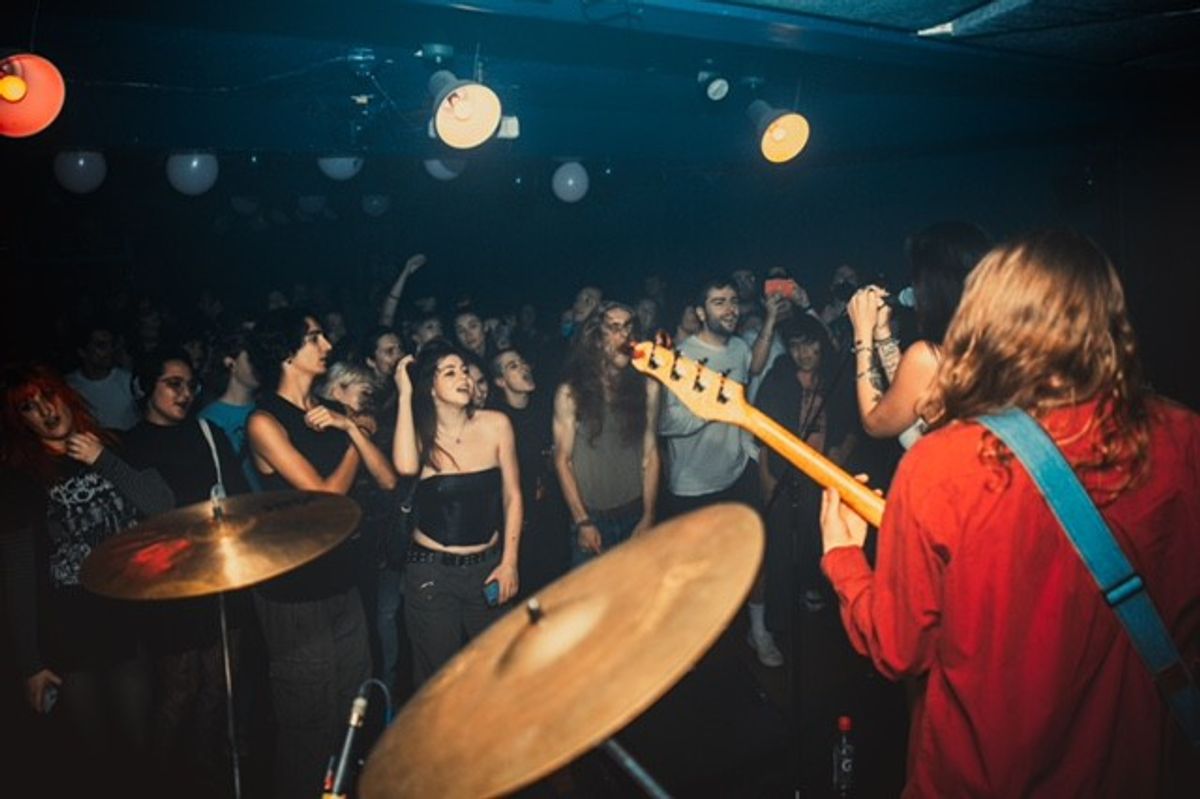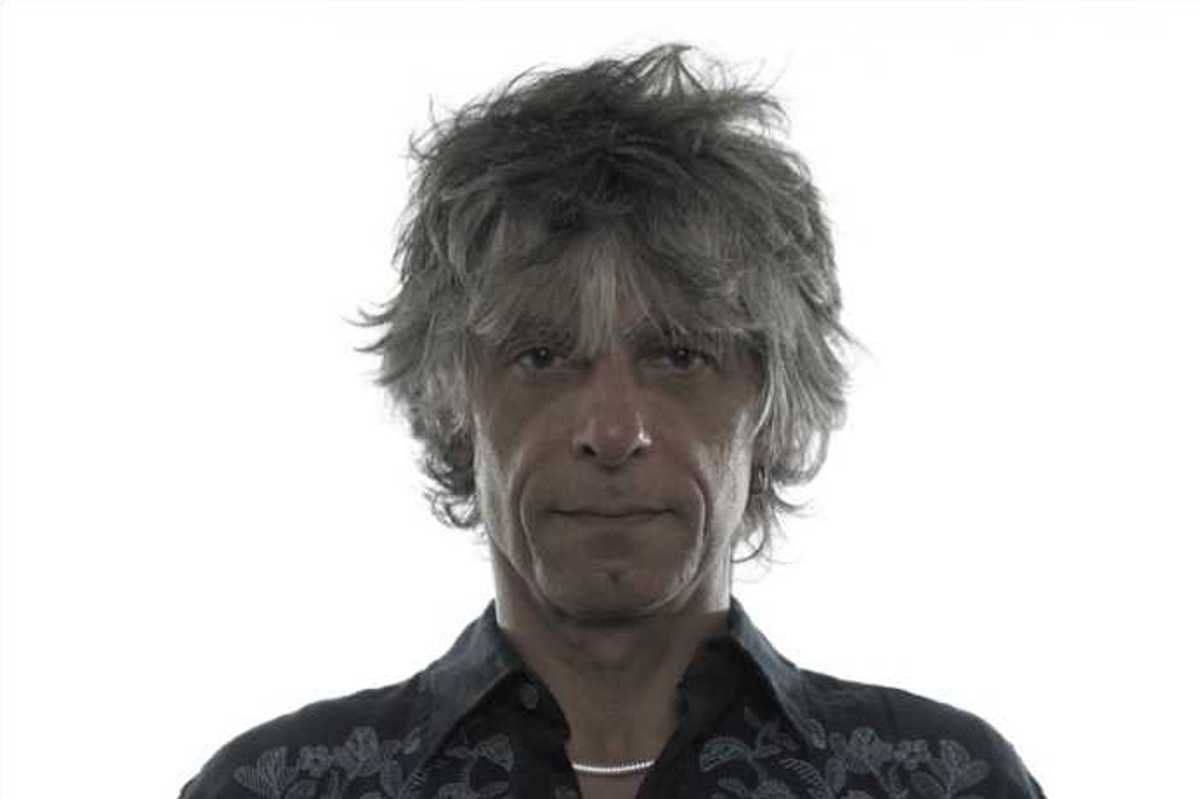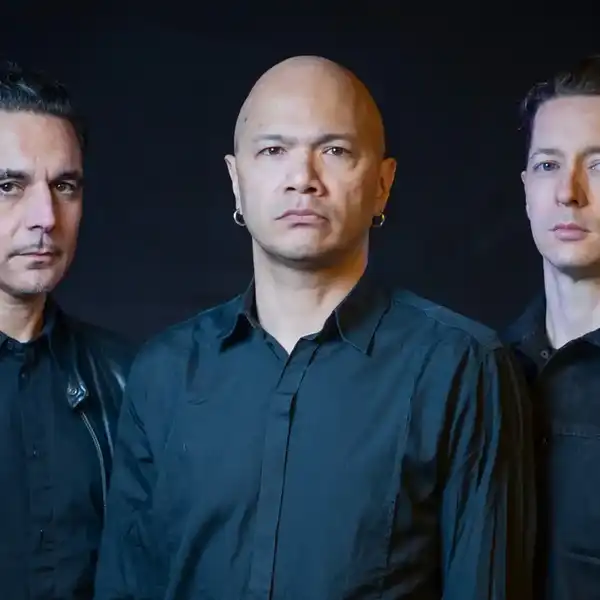As Montreal Venues Raise Concern About Noise Complaints, Changes Could Be Coming
As venues like Turbo Haüs and The Diving Bell Social Club express frustration with noise complaints from neighbours, the City of Montreal says a new “agent of change” nightlife policy is on the way.

Postmistress playing a recent show at Montreal venue The Diving Bell Social Club
Montreal venue owners have been making noise about existential threats to their businesses. Now, the City of Montreal says a new nightlife policy will make changes to how noise is regulated in the city.
On Nov. 20, Sergio Da Silva incited a conversation about noise complaints when he posted a screenshot of a message recently received by Turbo Haüs, a long-running rock venue co-owned by Da Silva and located in Montreal’s entertainment district, the Quartier des Spectacles.
In French, the message informs Turbo Haüs that because noise from the venue was audible in a nearby residential region, they may be subject to a fine of up to $12,000.
“Nice to know it’s illegal to have des spectacles in the f—ing [Quartier] des Spectacles,” Da Silva wrote on X.
Turbo Haüs is far from the only venue affected by noise complaints in Montreal.
Prominent venue The Diving Bell Social Club, is currently preparing to close down this month, in part due to complaints the venue says they’ve received from a neighbouring landlord.
Responding to questions about noise complaints, Julien Deschênes — a political aid for the City of Montreal — tells Billboard Canada that a new nightlife policy is currently under development at the city, and should be ready for city council approval in January. The policy, Deschênes says, will seek to implement the “agent of change” principle, which puts the burden on new buildings that go up near commercial establishments to adapt to the existing noise in the area and not vice versa.
Deschênes says that the specific framework is not yet finalized, but that the policy will aim for implementation in the Ville-Marie borough, home to Turbo Haüs, as well as Plateau-Mont-Royal, where The Diving Bell is located.
Montreal has a reputation for supporting arts and culture — launching the careers of Canadian stars like Kaytranada and Grimes just in the last decade — but as rents rise, new developments go up, and the city landscape changes, artists and cultural workers are raising concern about the future of the city’s venues. According to The Globe and Mail, Da Silva has advocated for the city to adopt an agent of change policy, which other cities like Toronto already have.
Any planned changes to the city’s noise rules will arrive after The Diving Bell closes its doors this month. Since opening in 2018, the venue, located along bustling nightlife street Boulevard Saint-Laurent in the Plateau-Mont-Royal borough, has become a popular spot for Montreal concerts, hosting events for festivals like POP Montreal and Taverne Tour as well as putting on shows with management company Hot Tramp. From the beginning, the venue founders foresaw potential noise problems given that the third-floor space shares a wall with a residential building.
In order to mitigate noise, co-founder Wrinch says the founders spent $6,000 soundproofing the shared wall between the buildings. They also adapted their business model, primarily hosting live music on weekends, and took over the building’s fourth floor, turning it into an art space, to avoid affecting any neighbours above — a strategy Da Silva also employed at Turbo Haüs.
Wrinch says these approaches worked well for a time, but after Montreal’s pandemic lockdown ended police started coming to events in response to frequent noise complaints. Wrinch explains that the police haven’t issued the venue any fines, but it’s a risk they can’t afford to take. “It’s just always this looming thing, that ultimately we can’t afford to pay — especially after the pandemic — noise complaint fees. That’s how Divan Orange got shut down.”
"We need spaces"
Divan Orange, a former Saint-Laurent venue — located minutes from the Diving Bell’s current space — closed in 2018 due to noise complaints. Scott Munro of post-punk band Preoccupations played at Divan Orange before it closed, and he’s performed at Diving Bell with Montreal artist Marlaena Moore. “If nobody knows who you are, it’s so hard to get a gig sometimes,” Munro says. “We need spaces.”
The city’s noise policies are currently governed by borough bylaws that limit the noise that can emanate from those venues. In Ville-Marie, noise from speakers is prohibited from extending beyond the venue. Deschênes says that the city will also be reviewing noise by-laws in the upcoming year, to reassess how noise is monitored. “We want to move rapidly on the noise by-laws, especially in the Plateau and Ville-Marie too,” Deschênes says.
Underground venue Mai/Son has also recently paused all activities due to noise complaints from neighbours, says founder Solomon Azrieli. The venue is located in Montreal's Mile End neighbourhood, around the corner from Saint-Laurent, and has built up a community of local artists like singer-songwriter Lucy Earle and pop artist Fireball Kid since opening in 2022. Unlike Turbo Haüs and Diving Bell, Mai/Son is in a residential building and doesn’t have a liquor license.
“We don’t really have a leg to stand on,” Azrieli acknowledges. “We’re in a residential neighbourhood and if we’re making really loud noise then it’s totally fair game for people to call the cops on us.” Despite not being licensed, underground venues serve as hubs for local labels and rising artists and also host touring musicians, providing more affordable places for artists to perform. “A lot of what makes Montreal Montreal is the existence of these kinds of institutions,” Azrieli says.
Complaints sometimes come from residents in buildings that have only recently become residential, directed at venues in buildings that have long been commercial spaces. “This building has had bars and nightclubs zoned into it since the ‘70s at least,” Wrinch says of The Diving Bell’s current location. Per his understanding, the neighbouring building was zoned residential in the 2010s.
Plateau theatre La Tulipe lost a Superior Court case this year regarding noise complaints from a neighbour. The theatre, built in 1913, has operated as a concert venue since 2004. The neighbouring building was purchased by a real estate developer in 2016, CBC reports. The agent of change principle would theoretically take the responsibility off of existing venues to account for newer residential developments that are going up.
“Spaces like the Diving Bell, Turbo Haüs, and Casa [del Popolo] — showrooms that are between 80 and 200 people — are really, really important for a city like Montreal that prides itself on being this artistic hub, this capital city of arts and culture,” Wrinch says. “You just can’t jump from starting out to playing [900 capacity venue] Club Soda immediately — nor should you, nor does anyone want to really. You’ve got to form these connections with people up close.”
The Diving Bell plans to go out with a bang this month, with a teen angst themed covers night on Sat. Dec 9 and a DJ night the following weekend. Wrinch hopes the venue will return in another capacity in the future.
- Long-Running Montreal Venue La Tulipe Ceases Operations After Quebec Court's Decision | Billboard Canada ›
- La Tulipe, la salle de spectacle montréalaise emblématique suspend ses activités à la suite d'une décision de la Cour d'appel du Québec | Billboard Canada ›
- Montreal Announces Music Venues Now Exempt From Noise Bylaw | Billboard Canada ›
- Montréal annonce que les salles de concert seront désormais exemptées du règlement sur le bruit | Billboard Canada ›
- Montreal Announces $2.5 Million for Venue Soundproofing Amidst Noise Complaint Controversies | Billboard Canada ›
- Montréal annonce 2,5 millions de dollars pour l'insonorisation de ses salles de spectacles, alors que les plaintes relatives au bruit suscitent la controverse | Billboard Canada ›
- Music Venue La Tulipe Wins Noise Ruling in a Major Decision for Live Music in Montreal | Billboard Canada ›
- La salle de concert La Tulipe remporte une victoire majeure dans une affaire de bruit, une décision clé pour la scène musicale montréalaise | Billboard Canada ›

















